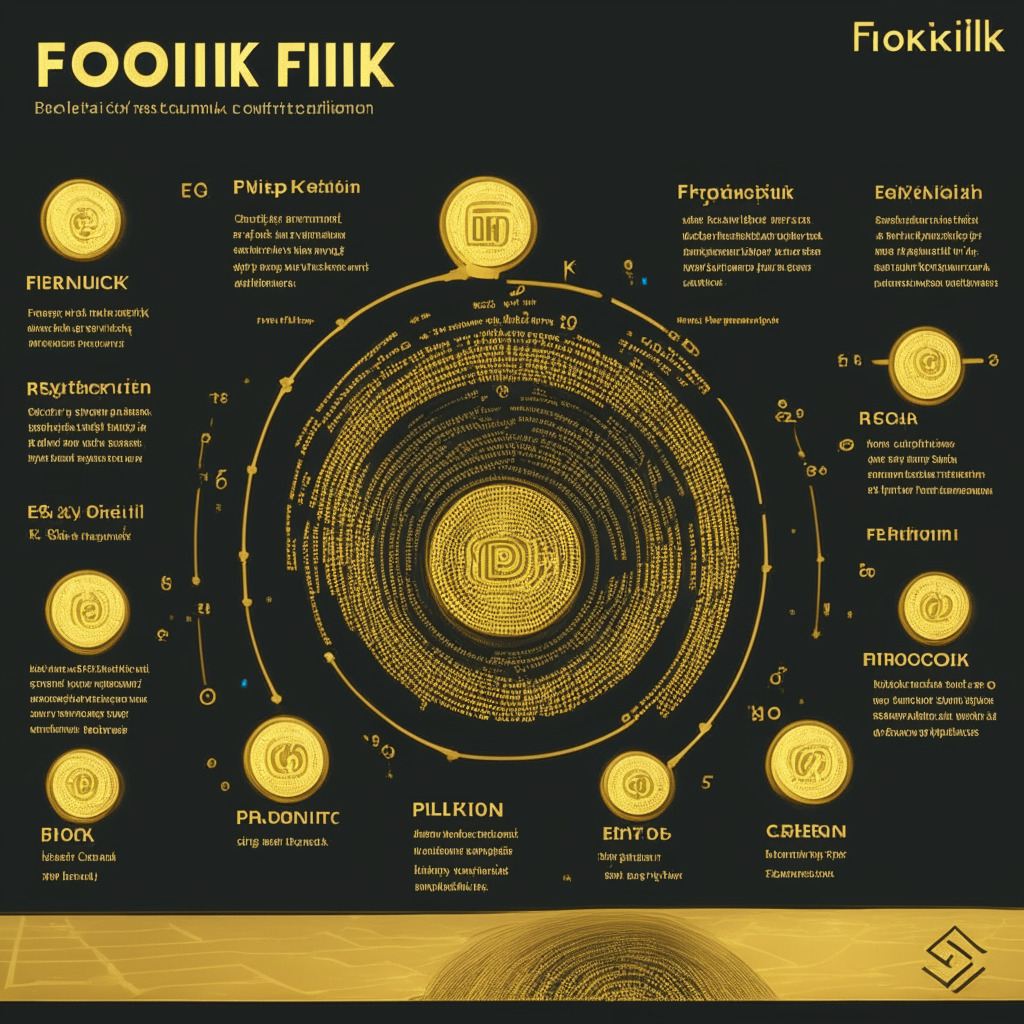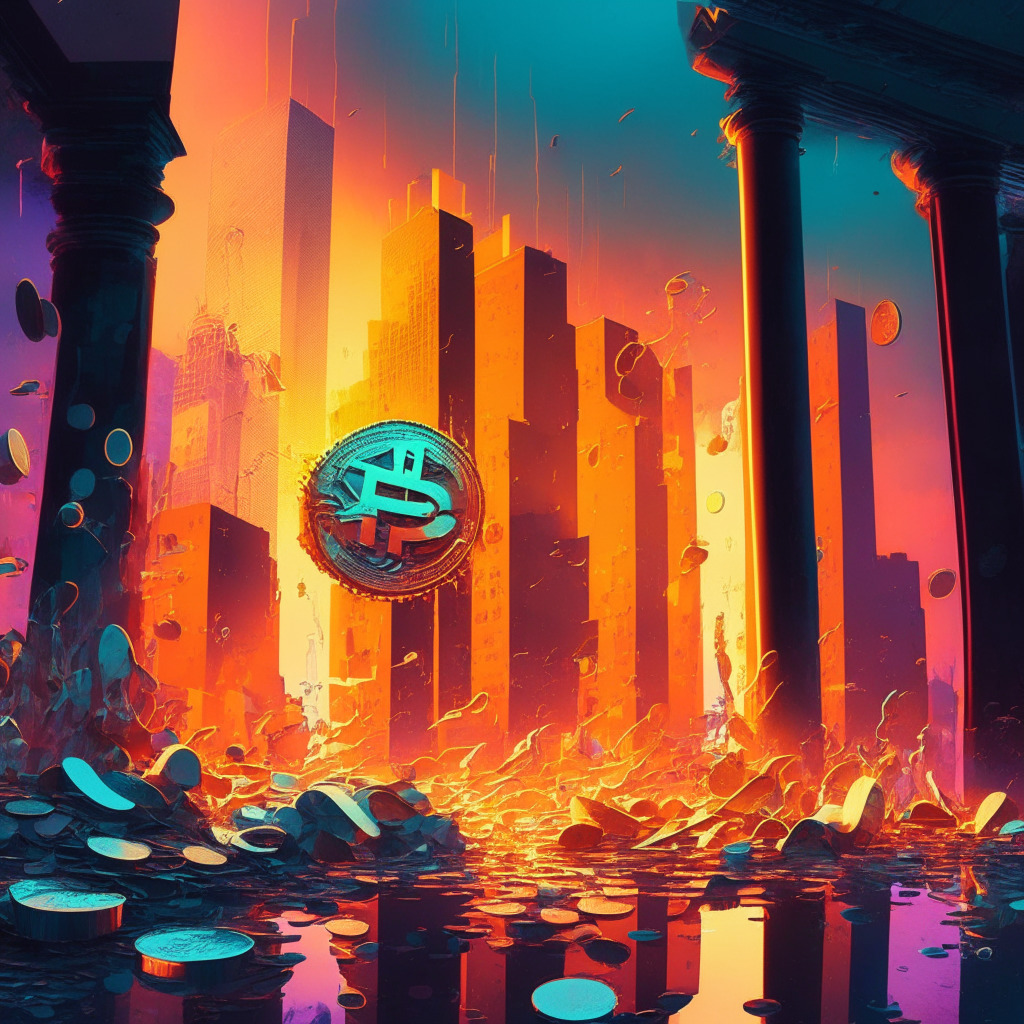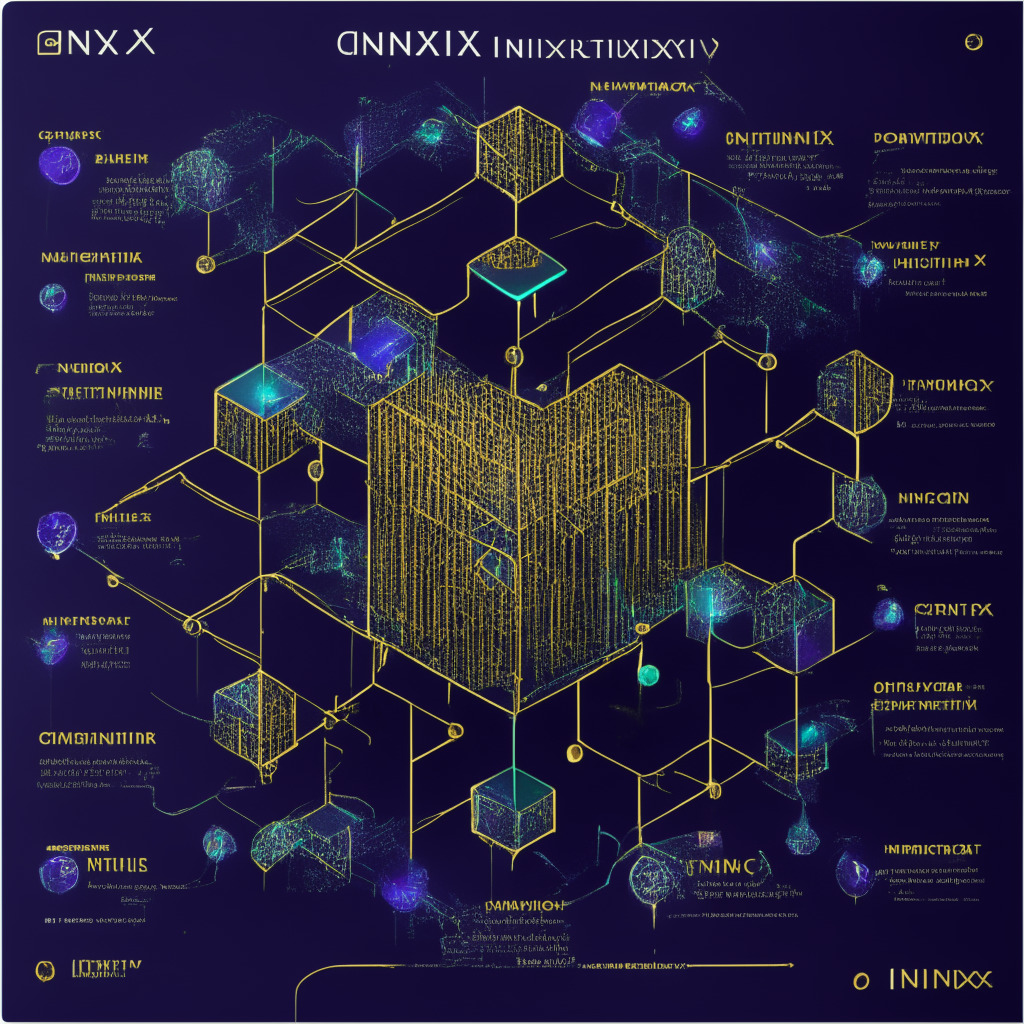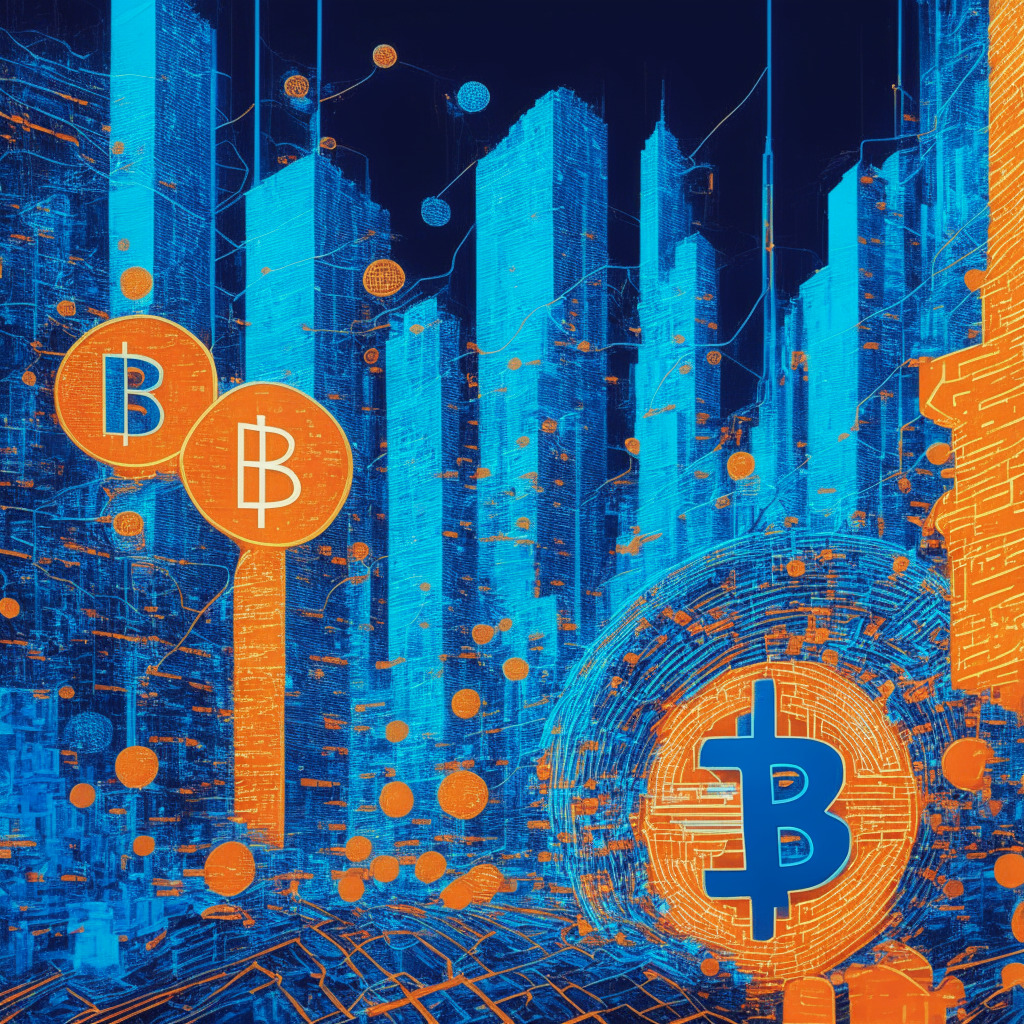Bitcoin declined over 5% in 24 hours, as traders offloaded risk assets ahead of the April Consumer Price Index (CPI) report. The downward trend also affected Ethereum, Dogecoin, and Polygon. The upcoming CPI report will reveal the Federal Reserve’s progress in curbing inflation.
Search Results for: SEPA
Coinbase Eyes UAE as Crypto Hub: Growth Opportunities and Regulatory Challenges
Coinbase executives meet with UAE industry leaders and policymakers to discuss the potential of the region as a strategic hub for the exchange. The UAE’s development in the Web3 ecosystem and progressive crypto regulations make it an attractive location for potential investments.
Floki Coin’s Rounding Bottom Pattern: A Bullish Reversal and Potential 61% Increase
The Floki coin price recently formed a bullish reversal rounding bottom pattern with potential for a massive rally. Aided by a 73% gain in trading volume and listing on Binance cryptocurrency exchange, the Floki coin price has surpassed local resistance, indicating a new recovery cycle.
Legislation Impact: Will Crypto Firms Refunding Fraud Victims Boost Investor Confidence?
The New York Attorney General’s Office has proposed legislation to protect cryptocurrency investors from fraudulent activities by requiring crypto companies to adhere to specific standards and offer refunds to victims. This aims to increase consumer confidence and adoption of digital currencies.
Navigating Crypto’s Reputation: Overcoming Scandals and Embracing Blockchain Evolution
Recent incidents like hacks, ransomware attacks, and high-profile failures have contributed to a negative perception of cryptocurrency. It’s crucial to separate disruptive blockchain technology from shady acts and embrace regulation and rebranding to overcome setbacks and achieve widespread adoption.
Alchemy’s StarkNet Integration: A Turning Point for Blockchain Adoption and Innovation
Alchemy’s integration of StarkNet, the zero-knowledge (ZK) rollup scaling solution, signifies a potential turning point for mainstream blockchain adoption. The platform offers faster, cost-effective transactions and account abstraction for flexible crypto wallets, fueling developers’ interest in innovative blockchain applications. However, increased complexity and steep learning curves could present challenges.
Choosing the Right Banking Partner: Key Factors for Crypto & Blockchain Companies
Crypto and blockchain companies should carefully consider factors like experience, compliance, transparency, and adaptability when selecting a banking partner. Prioritize banks knowledgeable about the crypto regulatory landscape, examine their relationship with regulators, and assess their security and technology infrastructure for a successful partnership.
Sui Blockchain Mainnet Launch: Advantages, Obstacles, and Implications for DeFi Future
Sui, a Layer-1 blockchain developed by Mysten Labs, has launched its mainnet, offering advanced technology with high-performance, sub-second finality, and rich on-chain assets. The platform promises scalability and accommodates numerous applications at low costs, using a Delegated Proof-of-Stake consensus mechanism. With over 200 decentralized applications prepared for deployment, Sui’s native token is already listed on prominent exchanges.
Crypto Lending Chaos: Unraveling the Celsius Network Scandal and Lessons Learned
The now-defunct Celsius Network faces allegations of a “sham” distinction between its UK and US entities, raising concerns about their financial practices and possible fraudulent activities. This case highlights the importance of transparency, proper documentation, and adherence to regulatory guidelines in the crypto lending industry.
US Banks in Turmoil: Is Crypto a Safer Bet Amid Rate Hikes and Market Declines?
Despite Federal Reserve Chairman Jerome Powell’s positive remarks on the US banking sector, regional banks’ share prices have plummeted, raising concerns about the stability of the traditional banking system. On the other hand, cryptocurrencies and blockchain technology continue to gain momentum in the financial landscape, offering potential opportunities for prudent investors.
Insider Trading in NFTs: OpenSea Case Sheds Light on Regulation Challenges & Market Integrity
The conviction of ex-OpenSea Product Manager, Nathaniel Chastain, for wire fraud and money laundering raises questions about insider trading in the NFT market and potential regulation. Chastain’s trial outcome could impact the classification of NFTs as securities, highlighting the need for a balanced approach in regulating digital assets to ensure market integrity and foster innovation.
SEC Withdraws Digital Asset Definition: Clarity Eludes Crypto Regulation
The SEC recently removed the first formal definition of “digital asset” from its latest hedge fund rule, explaining that the term is still under consideration. This comes amidst the commission’s ongoing efforts in addressing crypto regulation and integrating digital assets into existing rules. However, the lack of an official definition leaves room for debate among industry stakeholders.
INX Wallet & BitGo Partnership: Advancing Institutional Crypto Adoption Through Security
INX announces a new wallet designed for institutions, incorporating compliance features in partnership with BitGo. This wallet uses advanced multi-party computation (MPC) technology and meets cybersecurity/ custody standards within the financial sector for holding INX securities tokens.
Celsius Network Debacle: The Fight for Justice, Transparency, and Asset Recovery in Crypto
Newly filed documents reveal Celsius Network’s alleged attempt to merge its fraudulent UK and US operations, sparking concerns for investors. The case highlights the need for transparency and regulatory oversight in the rapidly evolving, yet largely unregulated, crypto market.
AI in Entertainment: WGA Strike and Regulation Demands Fuel Ongoing Debate
The Writers Guild of America (WGA) has called for regulations on AI usage in the entertainment sector, demanding prohibition of AI in writing or rewriting literary materials, and barring its use as source material. Hollywood studios, however, have rejected these demands. The ongoing WGA strike highlights the contentious issue of AI’s potential benefits and pitfalls in the creative industries.
Debt Default Fears & De-Dollarization: Russia’s Stance on the Shaky US Economy
Russia closely monitors the US economy amid debt default concerns and warnings by Treasury Secretary Janet Yellen. The ongoing crisis highlights economic system weaknesses, prompting countries like Russia to explore alternate solutions such as de-dollarization efforts and a potential common BRICS currency.
Srinivasan’s $1M Bet Ends Early, Sheds Light on Economic Fragility & Bitcoin’s Volatility
Former Coinbase CTO Balaji Srinivasan ends his $1 million Bitcoin bet early, citing unprecedented events involving Silvergate Bank, Signature Bank, and Silicon Valley Bank, predicting a banking crisis, devaluation of the US dollar, and potential hyperinflation. Srinivasan’s actions raise concerns about the global economy and the unpredictability of Bitcoin and financial markets.
Bitcoin’s Hashrate Hits Record High: Impact on Speed, Security, and the Zettahash Era
Bitcoin’s network achieved an all-time high of 491.15 EH/s hashrate on May 2, 2023, indicating significant computational power supporting the network. This surge in hashrate comes with slower block times and over 240,000 unconfirmed transactions, highlighting the need to address the network’s efficiency. The entrance into the zettahash era raises expectations and debates on balancing the pros and cons of increasing computational power.
New Tax Framework for Crypto Losses: Pros, Cons, and Potential Market Impact
Researchers have proposed a new tax framework for cryptocurrency losses, recommending changes to prevent taxpayers from offsetting crypto losses against other capital gains. If adopted, this could impact investment behavior, market volatility, tax compliance, and industry growth while potentially reducing capital flow into the crypto market.
Hefty Penalties on Crypto Exchanges: Fair or Stifling Innovation?
Cryptocurrency exchange Poloniex has agreed to pay a $7.6 million settlement to the US Treasury Department’s OFAC for violating sanctions and improper KYC practices from 2014-2019. This raises concerns about whether such penalties are fair or stifling innovation in the blockchain industry, as small startups may lack resources to establish robust compliance programs. Finding a balance between investor protection and encouraging innovation remains a challenge.
Banking Jitters Impact Bitcoin: Analyzing BTC’s Plunge and the Wall Street Connection
As the cryptocurrency world ponders the impact of the fresh United States banking jitters, Bitcoin […]
Binance CEO’s Warning to Tron Founder: A Clash of Crypto Whales and Retail Users Over SUI Airdrops
Binance CEO and founder, Changpeng Zhao, has warned Justin Sun over any attempt to misuse […]
Crypto Crystal Ball: Haseeb Qureshi’s Contrarian Takes on Market, Regulation, and Ponzi Schemes
Haseeb Qureshi, managing partner of Dragonfly Capital and moderator of the popular crypto podcast “The […]






















